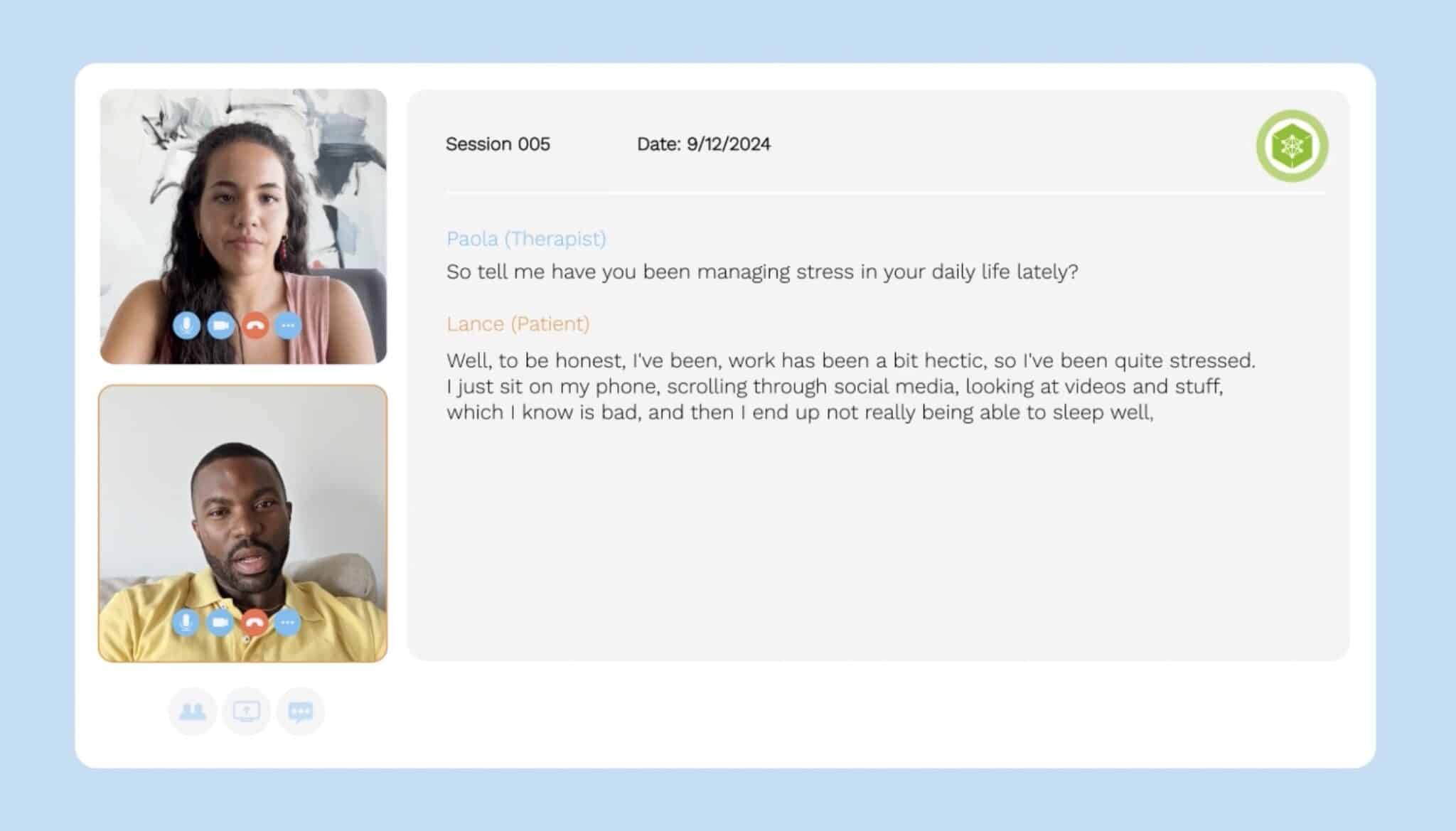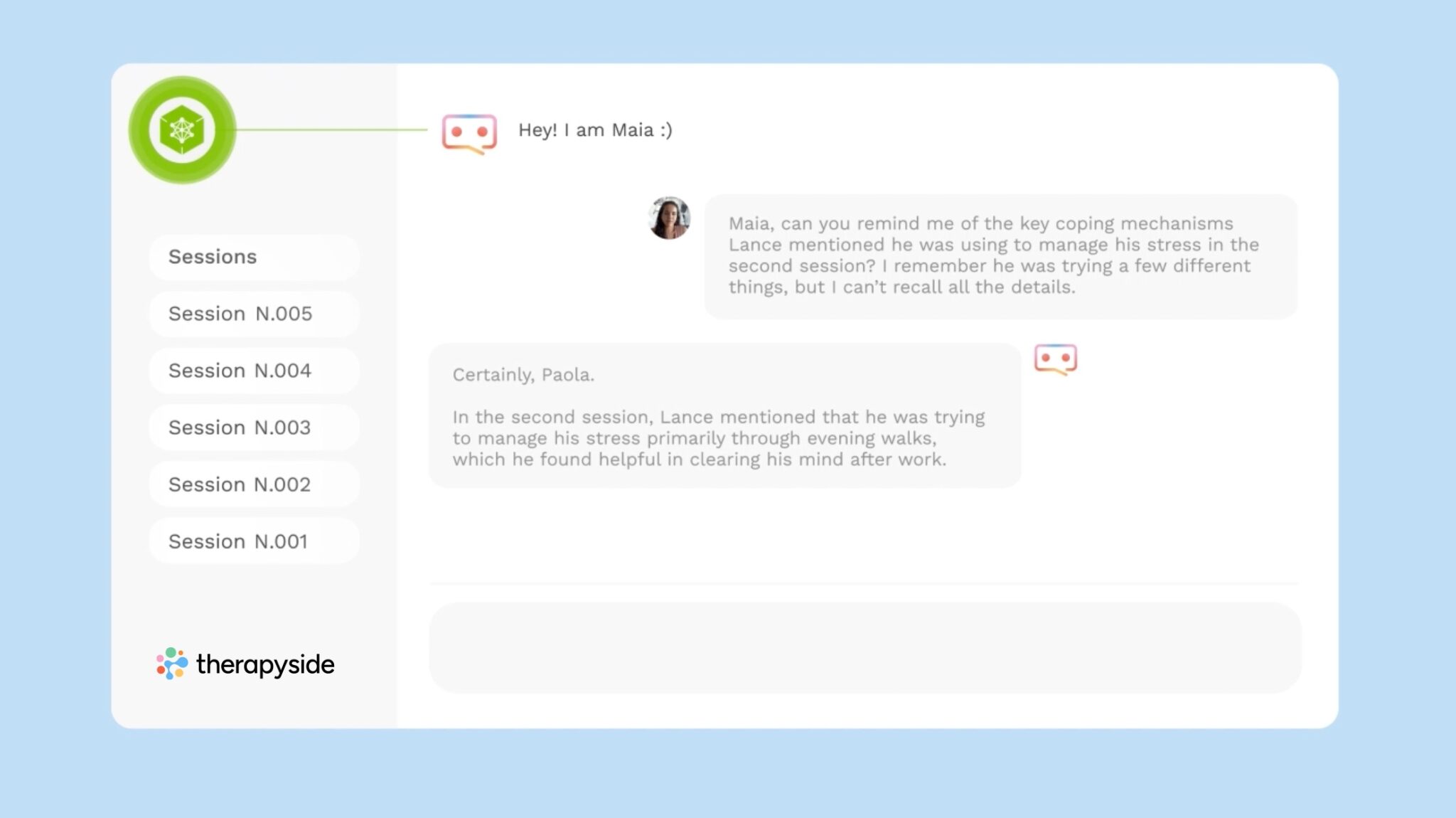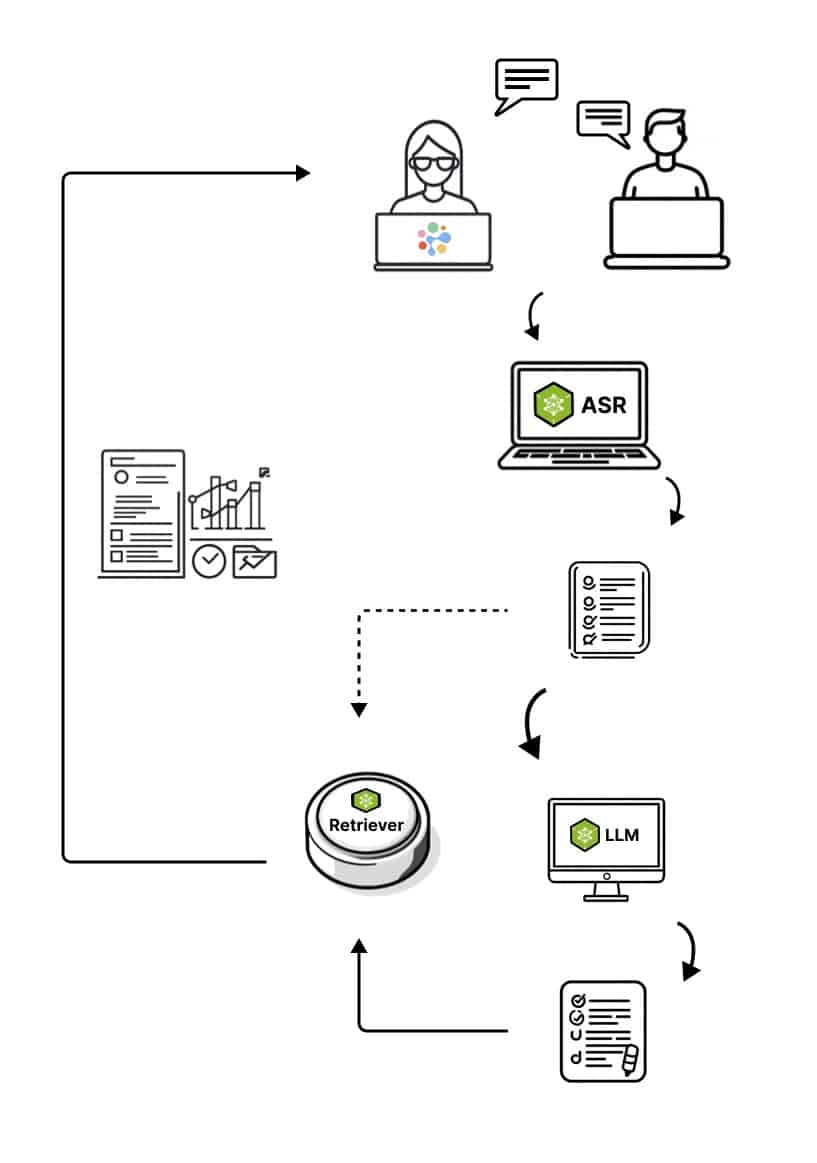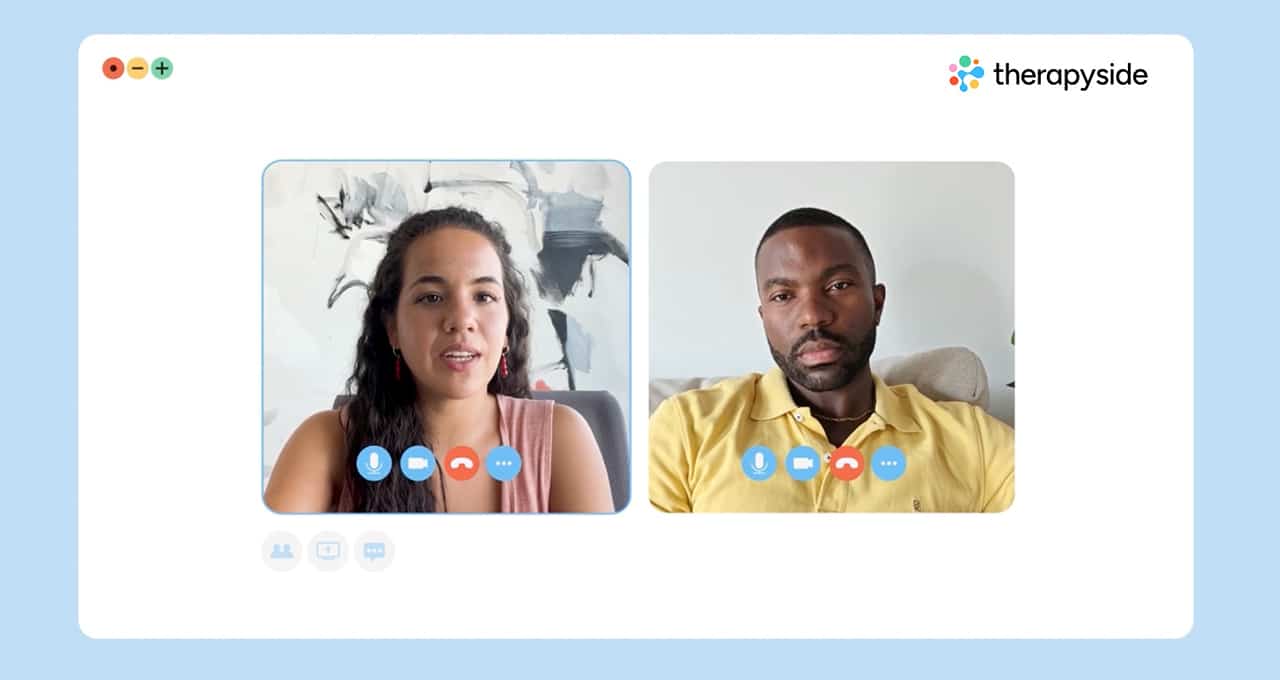Half of the world’s population will experience a mental health disorder — but the median number of mental health workers per 100,000 people is just 13, according to the World Health Organization.
To help tackle this disparity — which can vary by over 40x between high-income and low-income countries — a Madrid-based startup is offering therapists AI tools to improve the delivery of mental health services.
Therapyside, a member of the NVIDIA Inception program for cutting-edge startups, is bolstering its online therapy platform using NVIDIA NIM inference microservices. These AI microservices serve as virtual assistants and notetakers, letting therapists focus on connecting with their clients.
“In a therapy setting, having a strong alliance between counselor and client is everything,” said Alessandro De Sario, founder and CEO of Therapyside. “When a therapist can focus on the session without worrying about note-taking, they can reach that level of trust and connection much quicker.”
For the therapists and clients who have opted in to test these AI tools, a speech recognition model transcribes their conversations. A large language model summarizes the session into clinical notes, saving time for therapists so they can speak with more clients and work more efficiently. Another model powers a virtual assistant, dubbed Maia, that can answer therapists’ questions using retrieval-augmented generation, aka RAG.
Therapyside aims to add features over time, such as support for additional languages and an offline version that can transcribe and summarize in-person therapy sessions.
“We’ve just opened the door,” said De Sario. “We want to make the tool much more powerful so it can handle administrative tasks like calendar management and patient follow-up, or remind therapists of topics they should cover in a given session.”
AI’s in Session: Enhancing Therapist-Client Relationships
Therapyside, founded in 2017, works with around 1,000 licensed therapists in Europe offering counseling in English, Italian and Spanish. More than 500,000 therapy sessions have been completed through its virtual platform to date.
The company’s AI tools are currently available through a beta program. Therapists who choose to participate can invite their clients to opt in to the AI features.
“It’s incredibly helpful to have a personalized summary with a transcription that highlights the most important points from each session I have with my patients,” said Alejandro A., one of the therapists participating in the beta program. “I’ve been pleasantly surprised by its ability to identify the most significant areas to focus on with each patient.”

The therapists testing the tool rated the transcriptions and summaries as highly accurate, helping them focus on listening without worrying about note-taking.
“The recaps allow me to be fully present with the clients in my sessions,” said Maaria A., another therapist participating in the beta program.
During sessions, clients share details about their life experiences that are captured in the AI-powered transcriptions and summaries. Therapyside’s RAG-based Maia connects to these resources to help therapists quickly recall minutiae like the name of a client’s sibling, or track how a client’s main challenges have evolved over time. This information can help therapists pose more personalized questions and provide better support.
“Maia is a valuable tool to have when you’re feeling a little stuck,” said Maaria A. “I have clients all over the world, so Maia helps remind me where they live. And if I ask Maia to suggest exercises clients could do to boost their self-esteem, it helps me find resources I can send to them, which helps save time.”

Take Note: AI Microservices Enable Easy Deployment
Therapyside’s AI pipeline runs on NVIDIA GPUs in a secure cloud environment and is built with NVIDIA NIM, a set of easy-to-use microservices designed to speed up AI deployment.
For transcription, the pipeline uses NVIDIA Riva NIM microservices, which include NVIDIA Parakeet, a record-setting family of models, to deliver highly accurate automatic speech recognition. 
Once the transcript is complete, the text is processed by a NIM microservice for Meta’s Llama 3.1 family of open-source AI models to generate a summary that’s added to the client’s clinical history.
The Maia virtual assistant, which also uses a Llama 3.1 NIM microservice, accesses these clinical records using a RAG pipeline powered by NVIDIA NeMo Retriever NIM microservices. RAG techniques enable organizations to connect AI models to their private datasets to deliver contextually accurate responses.
Therapyside plans to further customize Maia with capabilities that support specific therapeutic methods, such as cognitive behavioral therapy and psychodynamic therapy. The team is also integrating NVIDIA NeMo Guardrails to further enhance the tools’ safety and security.
Kimberly Powell, vice president of healthcare at NVIDIA, will discuss Therapyside and other healthcare innovators in a keynote address at HLTH, a conference taking place October 20-23 in Las Vegas.
Learn more about NVIDIA Inception and get started with NVIDIA NIM microservices at ai.nvidia.com.
